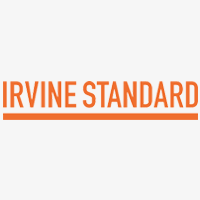Media Watch
Microbial Miners Could Help Humans Colonize The Moon And Mars
Space Ref -
Researchers in UCI’s Department of Materials Science and Engineering and Johns Hopkins University’s Department of Biology used high-resolution electron microscopy and advanced spectroscopic imaging techniques to gain a precise understanding of how microorganisms modify both naturally occurring minerals and synthetically made nanoceramics. … “Through a biological process that has evolved over millions of years, these tiny miners excavate rocks, extracting the minerals that are essential to the physiological functions, such as photosynthesis, that enable their survival,” said corresponding author David Kisailus, UCI professor of materials science and engineering. Read More
Sea urchin sperm is surprisingly useful to robotics experts
Popular Science -
A study published December 9 in the journal Physical Review E details the similarities between the trajectory of sea urchin sperm and computer systems that use a type of real-time search approach called extremum seeking. Engineers from the University of California, Irvine and University of Michigan made a mathematical model of the sperm’s pathway to better understand its behavior. According to the authors, assessing the sea urchin’s biological nature could help design miniature robots that follow cues from sources in the same way. Read More
Microbial miners could help humans colonize the moon and Mars
Phys.org -
"Through a biological process that has evolved over millions of years, these tiny miners excavate rocks, extracting the minerals that are essential to the physiological functions, such as photosynthesis, that enable their survival," said corresponding author David Kisailus, UCI professor of materials science and engineering. Read More
Sea Urchin Sperm Follow Their Noses
Physics Magazine -
Now Mahmoud Abdelgalil, [a mechanical & aerospace engineering graduate student] at the University of California, Irvine, and colleagues have discovered an unexpected synergy between established sperm navigation models and concepts from control theory. They developed a robust navigation model that relies on a single parameter: the local concentration gradient of the chemical the sperm cells track. The team says that their model could be used to describe the motion of other organisms that move in response to chemical gradients. Read More
UC faces tumultuous finals week as strike reaches pivotal moment
Los Angeles Times -
Mark Roche, a 21-year-old biomedical engineering student at UC Irvine, said his classes depend on teaching assistants. Finals this quarter were altered from tests to group projects, which has resulted in less stress for Roche. “Honestly, I thought it was a win,” he said. But Iliana Rosas, 21, was disappointed this week when the professor for her sociology, race and ethnicity class canceled their final exam. She was looking forward to testing her knowledge. But without a teaching assistant to grade the test, the professor decided to eliminate it. … Professors at UC Irvine were also given additional time — until the third week of January — to submit student grades for the quarter. This means if a student fails a class, they won’t know until the next quarter has already started and they’ll be behind if they need to immediately retake it, Rosas said. [Subscription required, you can request an electronic copy of the article by sending an email to communications@uci.edu.] Read More
Los Angeles County seeks flood control improvements in face of climate change
Los Angeles Times -
The Los Angeles County Board of Supervisors approved a motion calling on the Department of Public Works to prepare a report on the viability of existing flood control infrastructure, as well as plans for reducing flood risks and making disadvantaged communities more resilient. The motion … was spurred by a recent study led by UC Irvine researchers. … “Our infrastructure was built at a time when the county only cared about two things: economic development and safety from damaging storms,” Brett Sanders [UCI professor of civil and environmental engineering] said. “Now, we have an opportunity to rebuild it with a new set of goals.” [Subscription required, you can request an electronic copy of the article by sending an email to communications@uci.edu.] Read More
Experts say weather helped California avoid dangerous wildfires in 2022
KCBS -
"We are keeping most fires pretty small in size, not using lots of resources," said Tirtha Banerjee, an assistant professor of civil and environmental engineering. Banerjee studies wildfires and the prescribed burning of forests at the University of California, Irvine. Read More
New institute studies autonomous vehicles
Irvine Standard -
UC Irvine has opened a new research facility aimed at making breakthrough discoveries in zero-emission and autonomous vehicle technology. Irvine-based Horiba, a manufacturer of analytical and measurement instruments, donated $9 million to establish the institute as part of UCI’s Advanced Power and Energy Program. Called the Horiba Institute for Mobility and Connectivity2, it is housed in UCI’s Engineering Gateway building. Read More
11 Scientific Advancements Inspired by Sci-Fi Stories
Mental Floss -
Alon Gorodetsky, an associate professor of chemical and biomolecular engineering at UC Irvine, is one of the scientists working on human invisibility. Gorodetsky says he was “inspired by a lot of science fiction-type stuff that I used to love as a kid ….” In a 2020 Nature Communications paper, Gorodetsky and a team of scientists outlined how they used a protein from the opalescent inshore squid, which—like many other cephalopods—can camouflage itself by changing color to match its environment, to turn human kidney cells almost completely transparent. Gorodetsky believes this is just the start; his goal is to “make human skin that can change its transparency, like squid skin.” Read More
AIAA Announces its Class of 2023 Associate Fellows
AIAA -
The American Institute of Aeronautics and Astronautics (AIAA) is pleased to announce its newly elected Class of 2023 Associate Fellows. … The grade of Associate Fellow recognizes individuals “who have accomplished or been in charge of important engineering or scientific work, or who have done original work of outstanding merit, or who have otherwise made outstanding contributions to the arts, sciences, or technology of aeronautics or astronautics.” … Class of 2023 AIAA Associate Fellows: … Haithem Taha, [associate professor of mechanical & aerospace engineering], University of California, Irvine …. Read More









